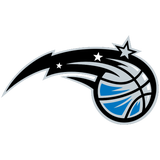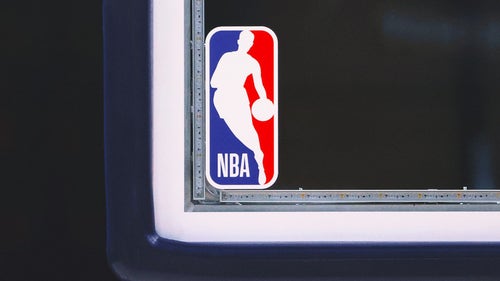
Magic hope Payton's place will eventually become free-throw line

ORLANDO, Fla. -- Elfrid Payton is by no means the first player in the history of the Orlando Magic to struggle to make free throws.
And, no, this didn't begin when Shaquille O'Neal came to them straight out of LSU before Payton, the rookie point guard from Louisiana-Lafayette, was even born.
Jeff Turner, who was part of the Magic's first team and now serves as their color analyst for FOX Sports Florida, remembers a less famous former LSU star having comparable problems. By the time Jerry Reynolds joined them through the 1989 expansion draft, he was shooting better than 75 percent from the line. But as a rookie four years earlier with the Milwaukee Bucks, the forward whose career would be based largely on his ability to draw fouls made only 55.8 percent of his attempts -- a number not much better than Payton's current 53.4-percent figure.
"He came to the realization that if he's going to be a good scorer in the league, you've got to make free throws," Turner said of Reynolds, who was an 83.4-percent shooter in the last of his three years in Orlando. "All the great scorers, that's how they get their points. So Jerry adopted the mentality, 'Go ahead and foul me. I want to get there. I want to be at the line because I'm going to make you pay.' "
Any longtime follower of the Magic who saw O'Neal, Nick Anderson, Bo Outlaw, Ben Wallace and Dwight Howard go through slumps of varying lengths can attest that poor free-throw shooting can't be cured only by wanting to improve. Mark Price, who was the NBA's all-time leader in free-throw accuracy when he retired in 1998 after a year with the Magic, is now an assistant coach with the Charlotte Hornets entrusted to a large extent with making over the shooting technique of Michael Kidd-Gilchrist.
Kidd-Gilchrist, the No. 2 pick in the 2012 draft out of Kentucky, didn't have the problems as a rookie that Payton finds himself up against. But when Kidd-Gilchrist went from hitting 74.9 percent of his free throws in his first year to only 61.4 percent last season, it became clear drastic steps were needed.
"It just depends on the player," Price said. "Some guys, it's more mental. Their technique's not terrible. Some guys need an overhaul in the technique. And that's something that needs to be done over the summer. It's not something you can drastically change over the course of a season."
"There are guys who you would say are not great shooters from a mechanical standpoint," said former Magic coach Brian Hill, who was an assistant with the Atlanta Hawks in the 1980s when Dominique Wilkins improved from 68.2 percent as a rookie to over 80 percent two years later. "But they're still good free-throw shooters because of repetition, repetition, repetition. So I definitely feel it's a combination of the two things -- the mental aspect and the mechanics of your shot."
Payton's accuracy at the line has fluctuated. After making only 44 percent of his free throws in December, he was a 67.5-percent shooter in January before going back down to 50 percent in February. In the fourth quarter last month against Philadelphia, 76ers coach Brett Brown twice had one of his players deliberately foul Payton in a variation on the Hack-a-Shaq strategy invoked during O'Neal's playing days.
"I've been on both sides of that," Magic coach James Borrego said. "It's helped us win in San Antonio. We did it in the playoffs a number of times (including against O'Neal and the Phoenix Suns in 2008). Until they change the rule, it's a part of the game. And if a coach feels like it gives them the best chance to win, use it."
"It's sometimes necessary," said Miami Heat coach Erik Spoelstra, who was an assistant under Pat Riley in 2006 when they won their first NBA title despite O'Neal shooting 37.4 percent from the line during their playoff run.
What makes Payton's situation out of the ordinary is that, with the glaring exception of Rajon Rondo this season, point guards have tended not to struggle like big men such as O'Neal, Howard and DeAndre Jordan of the Los Angeles Clippers. One of the few guards in recent history whose miseries became jaw-droppingly epic was Anderson, who hit only 40.4 percent of his free throws during the 1996-97 season.
When Chuck Daly became coach of the Magic the following summer, he made it a point of emphasis to have Anderson get over his fear of driving to the basket on the chance he would get fouled. By the end of the season, Anderson was back up to 63.8 percent and Daly was even sending him to the line on occasion to shoot technical fouls.
"When I was going through my free-throw woes, I remember coach Daly used to say, "Keep going to the basket. You want to get fouled,' " he said. "He (Payton) has to want to get fouled."
Payton has shot only four free throws since Brown's strategy in a game the Magic ended up winning 103-98. He did not play at all in the final 20 minutes Sunday night against the Hornets after he was beaten on several occasions by Mo Williams in a case of perhaps Payton's problems on offense carrying over to his defense.
"I don't think about, 'Will another team use it against Elfrid?' " Borrego said. "If they do it, Elfrid stays in the game, he makes his free throws, and we move on. But until they change that rule, it's well within the rules."
Added Price: "With Elfrid, it's just going to come to a matter where he decides how important that is for him to be a better player and then find the right guy who can help him with it."
Karl Malone, the second-leading scorer in league history, shot only 48.1 percent from the line as a rookie. By the time he retired, he was regularly flirting with to 80 percent while attempting (13,188) and making (9,787) more free throws than anyone ever.
While Payton will never have Malone's brute strength, trying to emulate his deft shooting touch is a more realistic goal.
"He will get better," Anderson said. "He's gotten better in other areas of his game. Why can't he get better at free-throw shooting? I see room for improvement. I know that he sees the same thing."
You can follow Ken Hornack on Twitter @HornackFSFla or email him at khornack32176@gmail.com.






